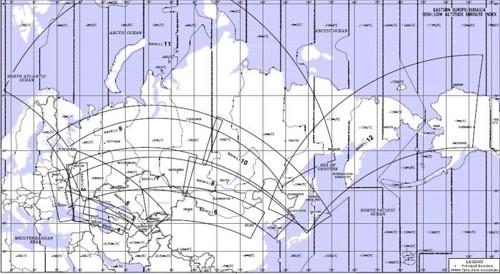[ad_1]
I was recently flying a trip and my first officer and I got into a discussion about how various family emergencies should be handled. My company has, historically, been very good about this, where if a person calls in with a crisis stating they needed to get home, they are immediately removed from the trip and their trip home facilitated. Clearly, from an operational and safety perspective, this is the right thing to do. A person who is stressed about events at home should not be flying an airplane.
The entire conversation got me thinking about the time I spent as a duty manager. There would be various ways that I would find out that a pilot had a crisis in their lives. Usually, the pilot would call and describe what was happening, and together we would decide the best course of action. Other times, I would get a call from a family member or friend of the pilot. What was interesting to me was how the pilots tended to react. Over the several years I worked as a manager, I cannot think of one time that the pilot asked to be let out of a flight that was close to departure. In every case, the pilot was greatly concerned about “protecting” the flight, and did not want there to be any delays due to their own actions. This is quite different than being physically ill or injured, where the lines are very clear. These are emotional events.
Now, picture this. A pilot just found out that a close family member passed. They are about to head to the airport to operate a 12 hour International flight on the opposite side of the World from where they live, and he or she requests not to be removed from the flight because they worried about whether the flight will be delayed. In fact, they are so concerned that often times they, themselves, were not the one that called in. Instead, a concerned friend or co-worker did for them (and generally without their knowledge). I point this out because pilots, regardless of background, tend to be strongly “mission oriented”. They want to get the job done, and take personal professional pride in being able to compartmentalize their emotions. What should the manager do? Should they let them fly?”
When a person first learns of an event such as a family member’s passing, marital problems, problems with children, etc., it takes some time for those thoughts to gel. In fact, initially, most of us are likely in a bit of a state of shock. The reality has not sunk in. I would imagine that most of these pilots did believe they were fine, and, in fact, they likely were fine at that moment. However, how would they be feeling 10 hours into their flight? Flying across a remote region, completely unable to communicate with their loved ones, unable to get updates or assist in any way. Completely powerless to help. On top of that, as rested (or not) as they may have been as they began that flight, now, hours later, fatigue has started to set in. What happens to emotions as a person gets tired? I think all of us know they rise to the surface. The ability to compartmentalize those issues disappears as those mental “walls” weaken with fatigue.
It was this state that I imagined downstream. People are often not in a position to best assess their own mental states. It is in times of crisis that we really need others to help us with that. The time I spent as a duty manager really provided me an opportunity to see how pervasive this issue is, but you do not have to be a manager to see the problem. In fact, depending on the company and culture, the manager may take the opposite tact and try to pressure the person to operate the flight. Like any risk, they may get away with it most of the time due to the redundancy in the system, but if things go wrong, it could easily be the catalyst that leads to an accident.
If you have a co-worker who is going through a crisis of some sort, realize that they may not be the best arbitrators of their own mental state, and, perhaps more importantly, that their ability to project how they will be feeling in a few hours is severely compromised.
The last thing anyone wants is a person flying an airplane who is not on their “A” game. Working together we can facilitate a safer operation by recognizing those times when a person is not able to self-assess themselves well enough to stay on the ground. This is not the time to tell someone just to “tough it out”. Be aware of your fellow crewmember’s mental states and, if necessary, take what actions need to be taken to ensure a safe operation. People are commonly poor judges of their own mental states, as they are with their own state of fatigue. Working along side someone can put you in the best position to assess their ability to operate safely.
===================================================
[ad_2]
Source link





